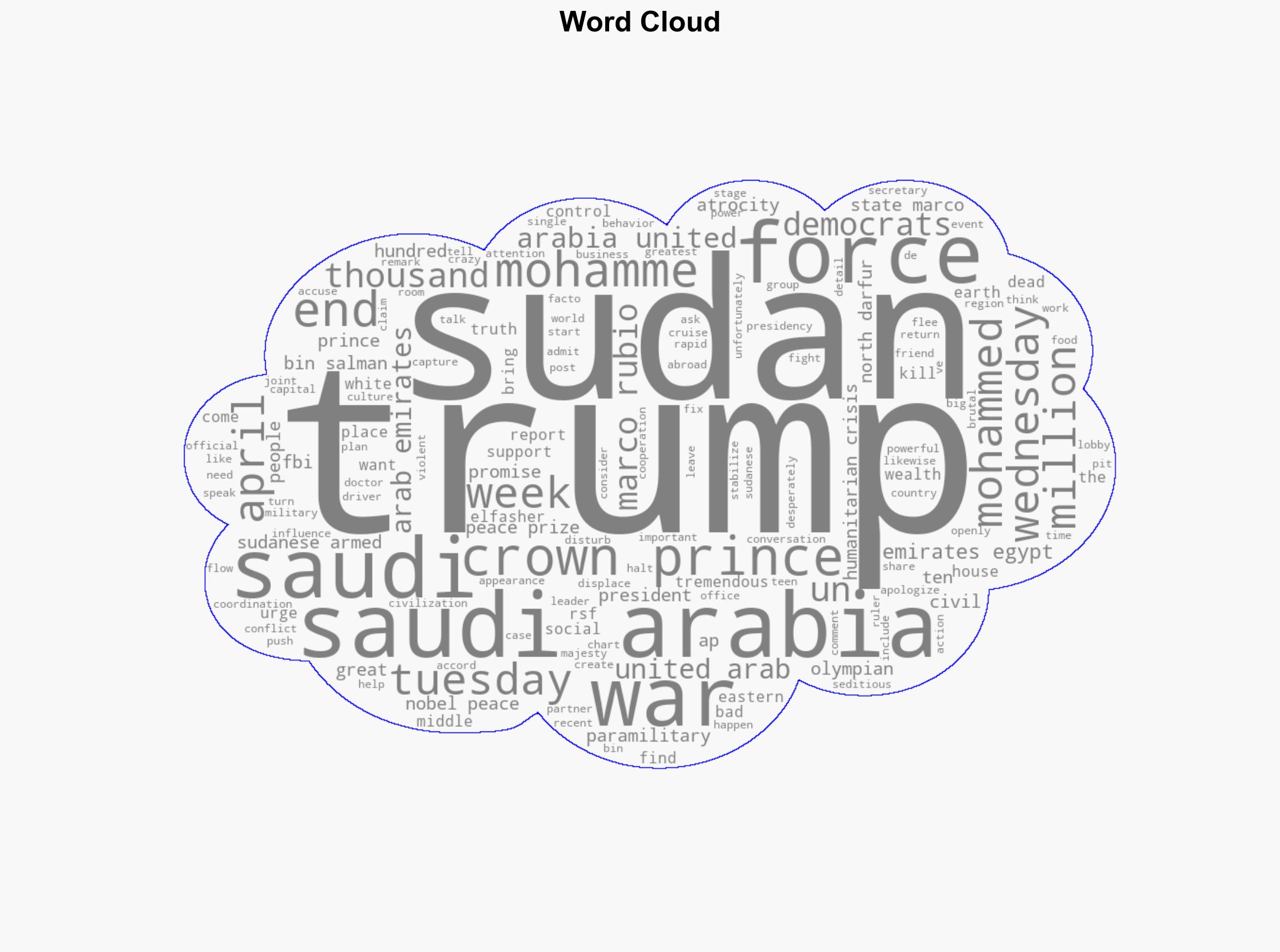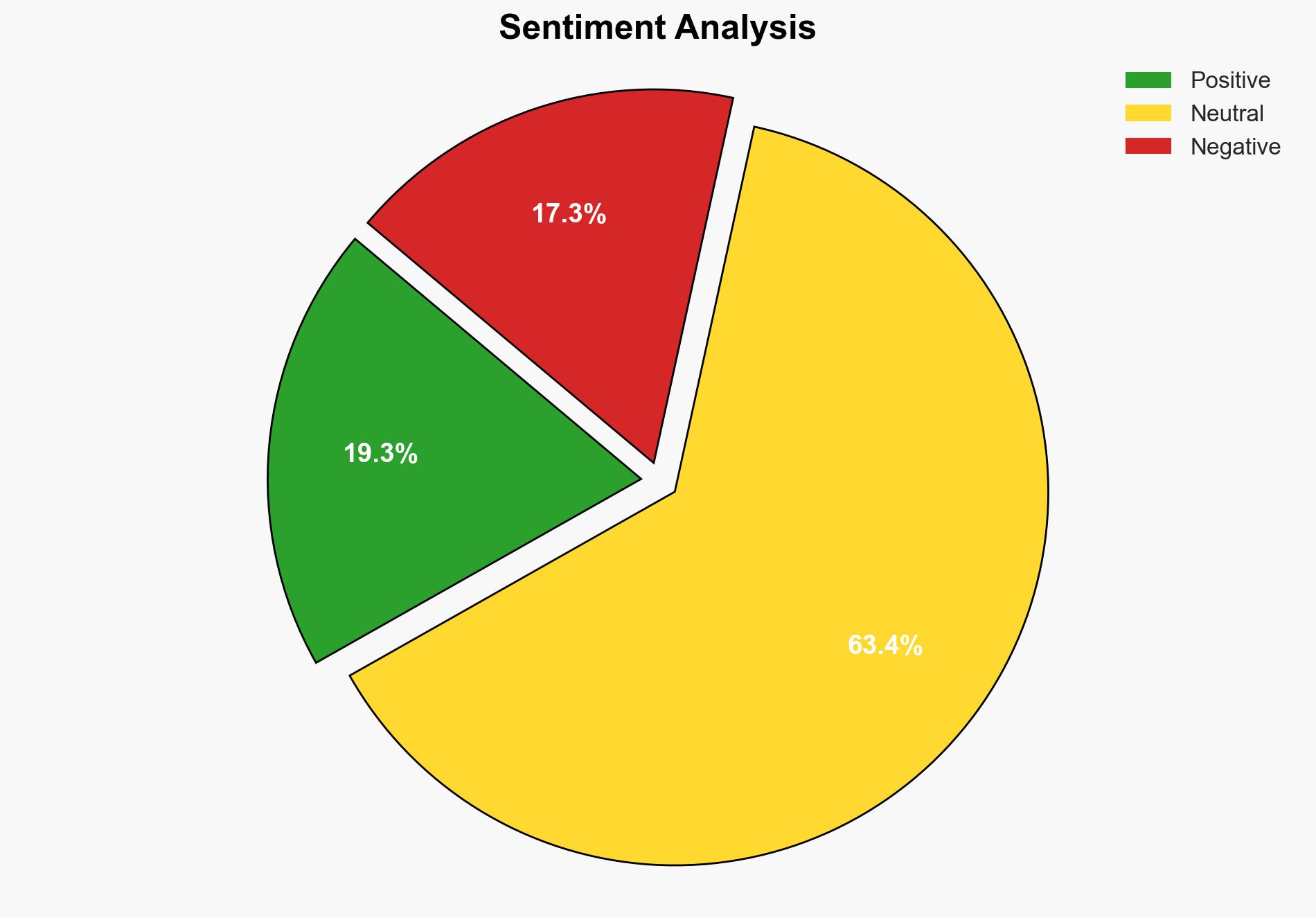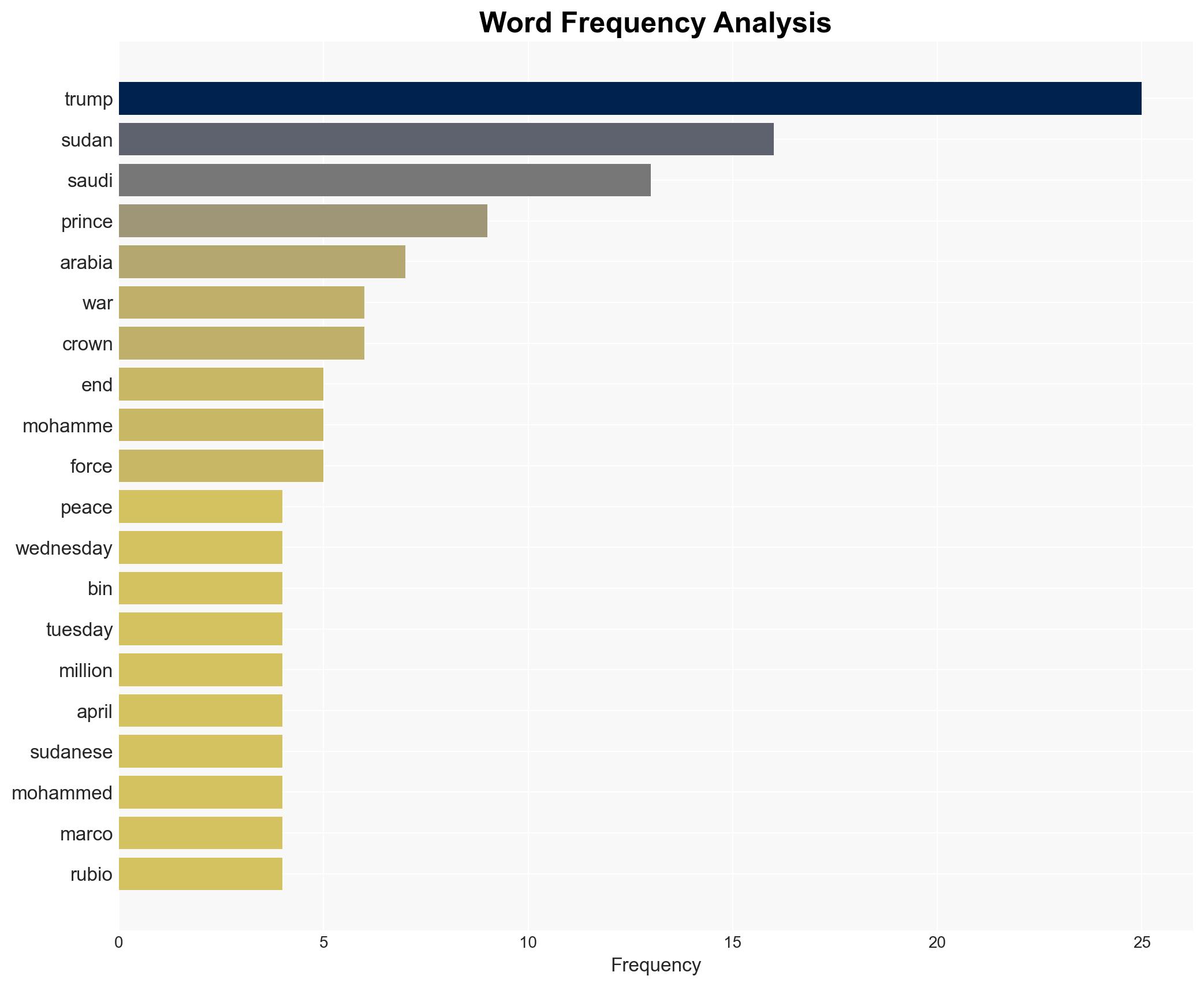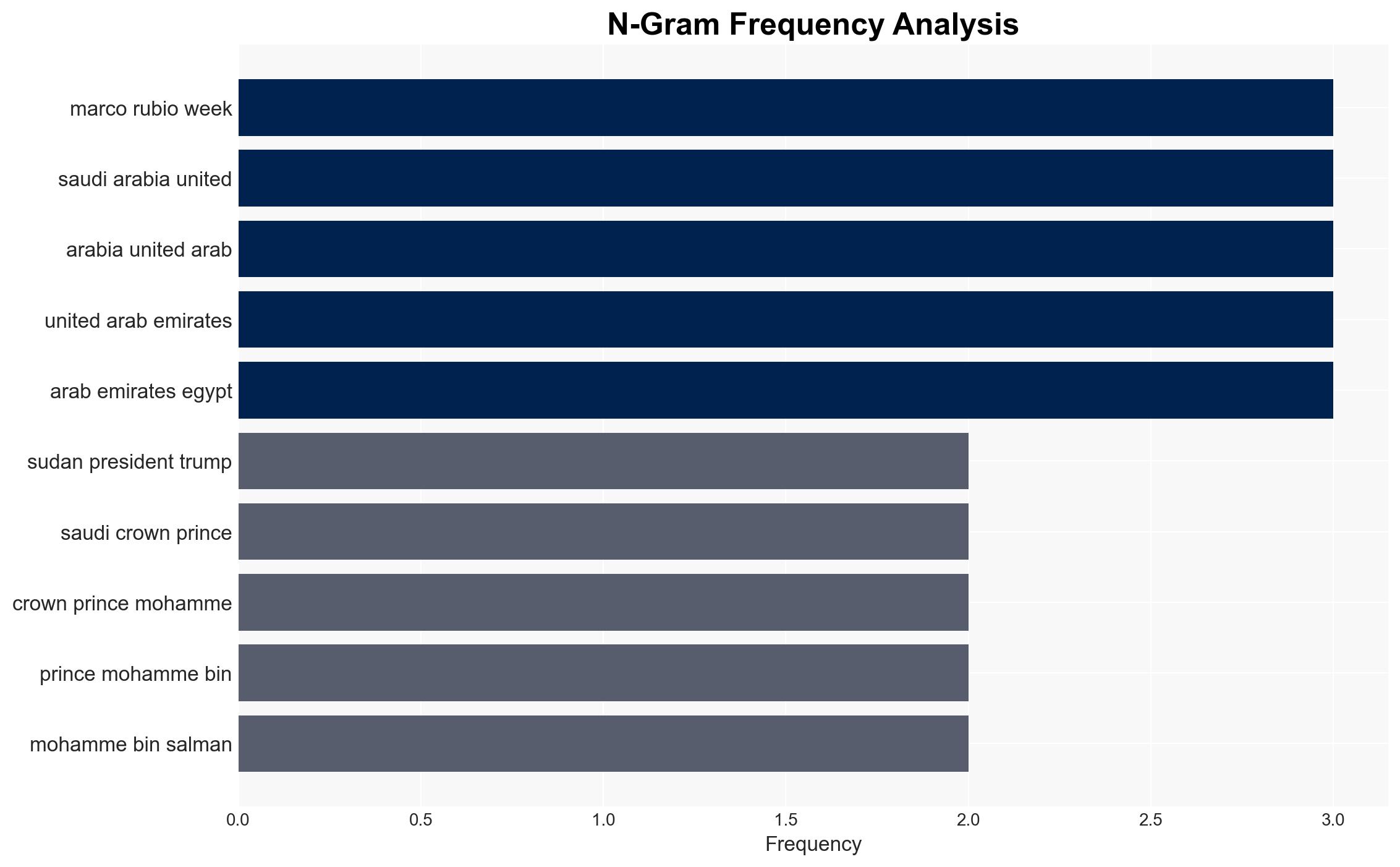Trump Says He’ll Push for Peace in Sudan – Newser
Published on: 2025-11-20
AI-powered OSINT brief from verified open sources. Automated NLP signal extraction with human verification. See our Methodology and Why WorldWideWatchers.
Intelligence Report:
1. BLUF (Bottom Line Up Front)
There is moderate confidence that former President Trump’s push for peace in Sudan is primarily a strategic move to bolster his international statesmanship credentials and potentially secure a Nobel Peace Prize. The most supported hypothesis is that this initiative is more about personal and political gain than a genuine commitment to resolving the Sudanese conflict. Recommended action includes monitoring Trump’s engagement with Middle Eastern leaders and assessing the impact on U.S. foreign policy and regional stability.
2. Competing Hypotheses
Hypothesis 1: Trump’s initiative is a genuine effort to leverage his influence and relationships in the Middle East to broker peace in Sudan, motivated by humanitarian concerns and a desire to improve his legacy.
Hypothesis 2: Trump’s peace push is primarily a strategic move aimed at enhancing his political image and securing a Nobel Peace Prize, with limited genuine commitment to resolving the conflict.
The second hypothesis is more likely due to Trump’s explicit mention of the Nobel Peace Prize and the lack of detailed plans or past engagement in Sudanese affairs. His history of using international engagements for personal political gain supports this interpretation.
3. Key Assumptions and Red Flags
Assumptions include the belief that Trump has significant influence over Middle Eastern leaders and that these leaders are motivated to act on his requests. A red flag is the absence of detailed plans or commitments from Trump or involved parties. The possibility of deception exists if Trump’s statements are primarily for domestic political consumption rather than genuine diplomatic efforts.
4. Implications and Strategic Risks
Potential implications include shifts in U.S. foreign policy priorities, affecting relationships with Middle Eastern allies. There is a risk of escalating tensions if Trump’s engagement is perceived as meddling or if it disrupts existing diplomatic efforts. Economic and informational risks include potential impacts on aid and investment in the region and misinformation campaigns leveraging Trump’s statements.
5. Recommendations and Outlook
- Monitor Trump’s communications and engagements with Middle Eastern leaders for indications of genuine diplomatic efforts or political maneuvering.
- Engage with regional partners to assess their perceptions and responses to Trump’s initiatives.
- Best-case scenario: Trump’s involvement leads to renewed diplomatic efforts and progress towards peace in Sudan.
- Worst-case scenario: Trump’s actions destabilize existing diplomatic efforts, leading to increased conflict and humanitarian crises.
- Most-likely scenario: Limited impact on the ground, with Trump’s actions primarily serving his political interests.
6. Key Individuals and Entities
Donald Trump, Mohammed bin Salman, Marco Rubio, Sudanese Armed Forces, Rapid Support Forces.
7. Thematic Tags
Structured Analytic Techniques Applied
- Cognitive Bias Stress Test: Expose and correct potential biases in assessments through red-teaming and structured challenge.
- Bayesian Scenario Modeling: Use probabilistic forecasting for conflict trajectories or escalation likelihood.
- Network Influence Mapping: Map relationships between state and non-state actors for impact estimation.
- Narrative Pattern Analysis: Deconstruct and track propaganda or influence narratives.
Explore more:
National Security Threats Briefs ·
Daily Summary ·
Support us





